Open Source Hardware & Gift Economy
(en; de)
Summary: Open Source Hardware works like gift-economy in some ways. Gift-Economy means to give something away without expecting something back directly. It is in some situations a valid way to grow wealth for groups as well as for individuals. But to make this work really well for oshw we have to work on better communication & exchanging (documentation) methods.
–
I like to share one more of my recent insights concerning the economy(ies) of open source hardware and openness.
A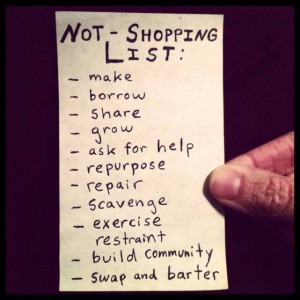 t 7Linden Victor, with whom i had also another interessting discussion, pointed out on some occasion the non-shopping list picture and he also said, that couchsurfing is gift-economy. And I thought: yes, „Open things can use other economy systems.“
t 7Linden Victor, with whom i had also another interessting discussion, pointed out on some occasion the non-shopping list picture and he also said, that couchsurfing is gift-economy. And I thought: yes, „Open things can use other economy systems.“
What is gift economy? „A gift economy is a mode of exchange where valuables are not sold, but rather given without an explicit agreement for immediate or future rewards.“ Imagine you as a part of a prehistoric group of individuals, something around 20 or 30. Every time you have something, you give it away to others, just without expecting something back for it. This is a powerful way to ensure your survival, because when everybody does the same, you will always have something. The whole group stays strong, alive and productive and your possibilities for development a better. Gift-economies have of course a lot of limitations, but for some situations and circumstances they are smart and powerful solutions.
Couchsurfing is an example for gift-economy. People offer their couches openly to travelers within the couchsurfing community without expecting anything back from them. But when they go to other cities, there are couches from others for them to spend the night. No counting and no money involved. Everybodys wealth and possibilities for personal development by exploring foreign countries increases. Couchsurfing is in a way open because you open your couch to others and share openly information about it and you on your couchsurfing profile page. The couchsurfing network and community expands thanks to the internet worldwide.
Open Source Softwares Gift Economy
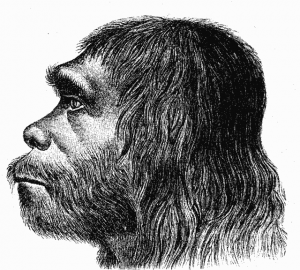 There are gift economy patterns in Open Source Software, of course.
There are gift economy patterns in Open Source Software, of course.
Some weeks ago i had a little discussion with Bastian from plants and machines. He asked, if open source software is driving developers into precariat. Gift-economy allows a short and pointedly answer to that: Yes, you give away code for free – as a gift – but you receive an incredible huge amount of code back – as a gift. The wealth of all as well as your own wealth increases. Everybody gets richer, maybe not with money but with possibilities. Imagine you would have to pay for your Mozilla Browser, your VLC Player, your Audacity, your WordPress or Bootstrap and all the great other FLOSS-Stuff, you use on a daily bases. How limited your life would be? Open Source Software makes you wealthy, maybe not with money but with other things.
And for Open Source Hardware & Open Design?
And when we look at Open Source Hardware there is the same of course. You give away building plans, post them openly – as a gift – and other people do the same. A worldwide gift-exchange of:
- abilities
- possibilities
- & trust
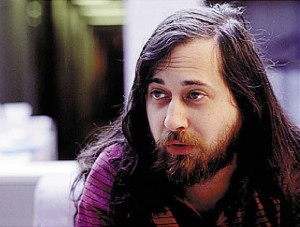
A gift-economy that can make everybody richer. Your possibilities to develop yourself and connect to your environment increase. People are allowed and enabled to grow and become stronger.
Money and hiding building plans behind paywalls would reduce this. Some things would even not be possible at all – most people won’t pay a large fee just to take a look at an interesting building plan only out of curiosity. But due to the gift-economy-dynamics, they can and they can learn and do their jobs better for example. (The whole state or public education system could be described as a gift economy.)
Open Source Hardware encourages every item on the non-shopping list!
Resilience and Sustainability – economic Worth of Open Source Hardware
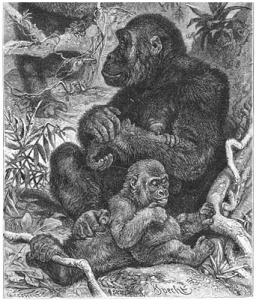 But an open exchange of abilities and building plans may allow us also some other things that are good and necessary for our future wealth, but are hard or impossible to make work with money: Resilience is one of the big promises of Open-Source-Hardware. Another one is the chance to organize a sustainable economy. Open building plans make repairing, reusing and recycling easier and therefore more likely to happen.
But an open exchange of abilities and building plans may allow us also some other things that are good and necessary for our future wealth, but are hard or impossible to make work with money: Resilience is one of the big promises of Open-Source-Hardware. Another one is the chance to organize a sustainable economy. Open building plans make repairing, reusing and recycling easier and therefore more likely to happen.
Maybe an economy that organizes smart use and reuse of materials needs to be build on top of a knowledge-gift-economy?
Communication and Exchange of Abilities & Possibilities
But how to make this really grow and explode? This is a question of communication. How to really get the exchange of knowledge, abilities and possibilities going? The better the communication of this is, the more we spread and the easier we can do it, the better everything will work. And here we come to the difficult issue of OSHW-documentation. How to open source things? How to share abilities easy, fast and connective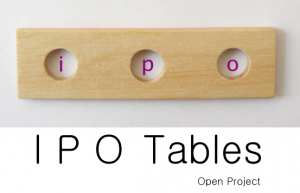 ? As I wrote several times, I think we are just at the beginning of developing suiting techniques and a culture for this. Our culture is at a very poor state when it comes to this right now.
? As I wrote several times, I think we are just at the beginning of developing suiting techniques and a culture for this. Our culture is at a very poor state when it comes to this right now.
In the IPO tables documentation tool project we shoot for:
(1) Easy to understand: The IPO approach tries to use the same information top layer for every object and part. This makes the start with new information easier and could reduce collaboration costs.
(2) A smart way for allocation of parts and materials: IPO aims to be a tool that has the possibility to invent and organize material flow cycles. This could make the supply out of the things you already got and you are surrounded by easier, the overall supply could become easier.
As an artist and economist i am highly interested in this part. It is the communication systems we use, that shape our economy, and also the way we connect to the world – our environment and ourselves.
Today?
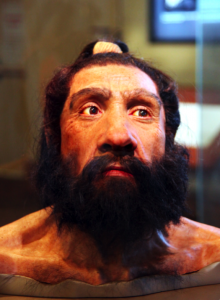 To be not misunderstood: I am not naive. I see and know that the gift-part is nothing that can sustain (many) people today. Money is important today and will be needed for many more years and decades. For that reason we look at all the business models that work with oshw. But maybe in the long run the gift-part will become stronger. If you look carefully: In some business models gift economy dynamics are already a part of everything (in open innovation e.g.). Maybe it will never grow to a level where it can sustain the a whole complex company. But there is certainly room for growth and the possibility to cover more things with it as we do today.
To be not misunderstood: I am not naive. I see and know that the gift-part is nothing that can sustain (many) people today. Money is important today and will be needed for many more years and decades. For that reason we look at all the business models that work with oshw. But maybe in the long run the gift-part will become stronger. If you look carefully: In some business models gift economy dynamics are already a part of everything (in open innovation e.g.). Maybe it will never grow to a level where it can sustain the a whole complex company. But there is certainly room for growth and the possibility to cover more things with it as we do today.
.
. . .
.
/* deutsch */
TITEL: Open Source Hardware & Schenkökonomie
Zusammenfassung: Open Source Hardware bedeutet in gewisser Weise Schenkökonomie. In einer Schenkökonomie gibt man etwas weg ohne die Erwartung einer direkten Gegenleistung. In einigen Situationen ist das ein funktionierender Weg zur Mehrung des Wohlstandes von Gruppen und Individuen. Aber um das für OSHW wirklich gut zu aktivieren brauchen wir neue Methoden für Kommunikation und Austausch (Dokumentation von Hardware).
–
Eine weitere Erkenntnis zur Ökonomie von Openness und Open Source Hardware:

In 7Linden hat Victor, mit dem ich auch andere interessante Diskussionen geführt habe, die Nicht-Einkaufs-Liste gezeigt (Bild) und außerdem die Bemerkung gemacht, dass Couchsurfing Schenkökonomie sei. Und ich habe aufgeschrieben: “Offene Dinge können andere Ökonomien benutzen.”
Was ist Schenkökonomie? In einer Schenkökonomie werden Güter weitergegeben ohne eine direkt erkennbare oder in irgendeiner Form explizit vereinbarte sofortige oder zukünftige Gegenleistung. Ein gutes Bild ist eine Gruppe Urmenschen mit vielleicht 20-30 Individuen. Jeder, der etwas hat, gibt es direkt an andere weiter, verschenkt es. Diese Technik ist geeignet, das Leben der Gruppe und jedes Einzelnen zu erhalten, denn wenn jeder das selbe macht, werden alle immer etwas haben. Die Gruppe bleibt stark und produktiv und damit steigen für alle die persönlichen Entwicklungsmöglichkeiten. Die Leistungsfähigkeit von Schenkökonomien ist natürlich begrenzt, aber in einigen Situationen bzw. in manchen Zusammenhängen sind sie eine kluge und machtvolle Lösung.
Couchsurfing ist ein Beispiel für eine Schenkökonomie. Menschen stellen hier offen Reisenden ihre Couch als Schlafplatz zur Verfügung ohne eine Gegenleistung von den Personen, die direkt bei ihnen übernachten, zu erwarten. Nichts wird gezählt, Geld kommt nicht vor. Aber wenn sie selbst auf Reisen sind, finden sie über die Couchsurfing-Community selbst Schlafplätze in aller Welt. Der Wohlstand aller und die Möglichkeiten persönlicher Entwicklung durch Reisen für jeden wächst. Couchsurfing ist offen, denn Menschen öffnen ihre Couch für andere und teilen offen Informationen über sich z.B. in ihrem Couchsurfing-Profil. Das Couchsurfing Schenknetzwerk erstreckt sich internetvermittelt über die ganze Welt und wird so sehr leistungsfähig.
Open Source Softwares Schenkökonomie
 Muster der Schenkökonomie finden sich bei Open Source.
Muster der Schenkökonomie finden sich bei Open Source.
Vor einigen Wochen hatte ich eine kurze Diskussion mit Bastian von Plants & Machines. Bastian fragte, ob Open Source die Softwareentwickler nicht ins Prekariat treiben könnte? Schenkökonomie erlaubt eine kurze und pointierten Beitrag auf diese Frage: Ja, man gibt Code weg – als ein Geschenk – aber man erhält sehr viel Code dafür zurück – als Geschenk. Der Wohlstand aller und damit auch der eigene steigt. Jeder wird reicher zwar nicht (direkt) an Geld dafür aber an Möglichkeiten. Man stelle sich vor, man müsste bezahlen für seinen Mozilla Browser, den VLC Player, Audacity, WordPress, Bootstrap und all die sichtbare oder versteckte FLOSS Software, die jeder täglich benutzt. Vielelicht würden sie mehr Geld einnehmen, aber müssten auch mehr für Software ausgeben. Und wie arm und limitiert wären das Leben und die Möglichkeiten aller dann? Würde der Softwaremarkt (bzw. der Softwarebedarf und die Softwareanwendungsfelder) schneller oder langsamer wachsen? Open Source Softwares Schenkökonomie steigert den Wohlstand aller, vielleicht nicht direkt die Geldsumme auf dem Konto aber den Wohlstand in Dingen, die man tatsächlich verfügbar hat.
Und Open Source Hardware & Open Design?
Sehen wir auf Open Source Hardware finden wir hier natürlich das selbe vor. Es sind Baupläne, die man offen – als Geschenk – weggibt und genauso – als Geschenk – überall her zurückerhält. Ein weltweiter Schenkaustausch von:
- Fähigkeiten
- Möglichkeiten
- Vertrauen

Diese Schenkökonomie macht reicher: Die Möglichkeiten jedes einzelnen für persönliche Entwicklung steigen und dies hat eine potentielle Rückwirkung auf die Entwicklungsmöglichkeiten aller.
Geld bzw. das Verstecken der Pläne hinter Bezahlwänden reduziert das erheblich. Einige Dinge werden damit sogar ganz unmöglich – niemand bezahlt eine größere Summe Geldes nur für einen Blick aus einfacher Neugier.
Open-Source-Hardware verstärkt und unterstützt jeden Punkt auf der Nicht-Einkaufliste!
Resilienz und Nachhaltigkeit – ökonomischer Wert von Open Source Hardware
 Ein offener Austausch von Bauplänen und Fähigkeiten kann uns Dinge ermöglichen, die für unsere Wirtschaft wichtig und notwendig sind, aber mit Geld nur unmöglich auszurücken oder anzureizen sind. Resilienz ist eines der großen Versprechen von Open Source Hardware. Die Chance für eine nachhaltige Wirtschaft eine andere: Offene Baupläne machen das Reparieren, Reduzieren und Recyceln wahrscheinlicher und einfacher möglich.
Ein offener Austausch von Bauplänen und Fähigkeiten kann uns Dinge ermöglichen, die für unsere Wirtschaft wichtig und notwendig sind, aber mit Geld nur unmöglich auszurücken oder anzureizen sind. Resilienz ist eines der großen Versprechen von Open Source Hardware. Die Chance für eine nachhaltige Wirtschaft eine andere: Offene Baupläne machen das Reparieren, Reduzieren und Recyceln wahrscheinlicher und einfacher möglich.
Diese aus Ressourcensicht notwendige Wirtschaft ist unter Umständen auf eine Wissensschenkökonomie angewiesen.
Kommunikation von Fähigkeiten & Möglichkeiten
Wie kann aber all dies wirklich wachsen und sich entwickeln? Das ist eine Frage der Kommunikation: Kann der Austausch von Fähigkeiten wirklich aktiv und einfach vonstatten gehen? Je besser und einfacher die Kommunikation und damit der Austausch von Fähigkeiten klappt, desto besser wird alles funktionieren. Und hier stoßen wir auf die schwierige Frage von Open Source Hardware-Dokumentation und Kommunikation.  Wie open sourced man physische Objekte schnell, einfach und anschlussfähig? Wie bereits mehrfach an anderen Stellen erwähnt: Wir stehen hier als Kultur noch ganz am Anfang. Die Techniken und die Kultur hierfür sind noch sehr unterentwickelt.
Wie open sourced man physische Objekte schnell, einfach und anschlussfähig? Wie bereits mehrfach an anderen Stellen erwähnt: Wir stehen hier als Kultur noch ganz am Anfang. Die Techniken und die Kultur hierfür sind noch sehr unterentwickelt.
Im IPO-Tabes Dokumentations-Werkzeug Projekt versuchen wir zu einer Weiterentwicklung und Diskussion hier beizutragen und konzentrieren uns dabei auf zwei Dinge:
(1) Einfache Verstehbarkeit: Der IPO Ansatz schlägt eine einfache Informationsgrundanordnung vor, die für alle (!) Objekte zunächst gleich sein kann unabhängig von verwendeter Software und Kontext. Eine immer gleich Informationsgliederung an der Oberfläche erleichtert den Einstieg in neue Informationen, die Kollaborationskosten (z.B. für das Erlernen der Informationsordnung oder die Implementierung des Wissens) können reduziert werden
(2) Ein einfacher Weg für die Allokation (das Auffinden) von Materialien und Bauteilen: IPO versucht tief in die Funktionsweise des Werkzeuges die Logik von Stoffkreisläufen (Recycling und Wiederverwendung) einzubauen. Die Erfindung und Organisation von geschlossenen Stoffkreisläufen soll damit (auch) möglich sein bzw. erleichtert und angereizt werden. Dies könnte die Versorgung neuer Projekte einfacher machen, weil es darauf zielt, dass sie aus Dingen geschehen kann, die sich bereits in der unmittelbaren Umgebung befinden.
Als Künstler und Ökonom bin ich an der Frage der Kommunikation hochinteressiert! Es sind unsere Kommunikations- und Kollaborationssysteme, die unsere Wirtschaft formen, sowie die Art wie wir unsere Umwelt und uns selbst verstehen.
Heute?
 Um nicht falsch verstanden oder für naiv gehalten zu werden. Es ist klar, das Schenkökonomie heute kein Weg ist, den Lebensunterhalt vieler Menschen zu sichern. Geld (als Vermittlungs- und Kooperationsinstrument) ist wichtig und wird es vermutlich noch für sehr lange bleiben. Deshalb greifen wir auf damit zusammenpassende Geschäftsmodelle für Open Source Hardware zurück. Aber vielleicht wird mit der Zeit der Schenkökonomieanteil an unserem Wirtschaften stetig größer werden. Schaut man sich heute um, findet man durchaus aktive Geschäftsmodelle, die Schenkökonomiedynamiken bereits mitnutzen (z.B. für Open Innovation). Vielleicht wird dieser Teil nie so groß werden, um damit eine größere Zahl von Unternehmen vollständig zu stabilisieren oder zu sichern. Aber ganz generell scheint es hier noch viel Raum für Entwicklung zu geben.
Um nicht falsch verstanden oder für naiv gehalten zu werden. Es ist klar, das Schenkökonomie heute kein Weg ist, den Lebensunterhalt vieler Menschen zu sichern. Geld (als Vermittlungs- und Kooperationsinstrument) ist wichtig und wird es vermutlich noch für sehr lange bleiben. Deshalb greifen wir auf damit zusammenpassende Geschäftsmodelle für Open Source Hardware zurück. Aber vielleicht wird mit der Zeit der Schenkökonomieanteil an unserem Wirtschaften stetig größer werden. Schaut man sich heute um, findet man durchaus aktive Geschäftsmodelle, die Schenkökonomiedynamiken bereits mitnutzen (z.B. für Open Innovation). Vielleicht wird dieser Teil nie so groß werden, um damit eine größere Zahl von Unternehmen vollständig zu stabilisieren oder zu sichern. Aber ganz generell scheint es hier noch viel Raum für Entwicklung zu geben.
___
Image Credits/Bildnachweise
(1) not-shopping; Photo Credit: Janelle Orsi of Sustainable Economies Law Center
(2) Neanderthaler Fund; public domain
(3) Richard Matthew Stallman; by Sam Williams; CC-BY-SA
(4) Brehms Het Leven der Dieren Zoogdieren Orde 1 Gorilla_(Gorilla_gina); public domain
(5) ipo tabs x8, by Lars Zimmermann; CC-BY-SA
(6) Homo_neanderthalensis adult male – head model – Smithsonian Museum of Natural History – 2012-05-17; by Tim Evanson; CC-BY-SA